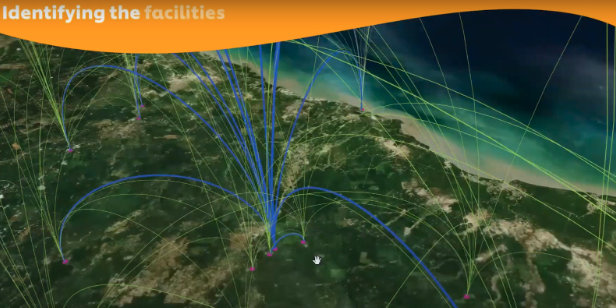Identify New Locations or Verify Existing Ones Quickly and Easily

As an organization, keeping track of operations around the globe is critical to operational success. Each market is different and poses social, economic and political challenges that need to be taken into consideration. But as cities constantly grow and change organizations need to be aware of these changes and the implications to business.
What is Location Discovery?
Just because you have a list of your business locations or where they’re sold doesn’t always mean that’s where they are, especially in emerging markets. Stores go out of business, move locations and new stores open constantly, meaning to understand your business you need to know about those changes.
One of the first steps to developing better strategies is assessing your current situation on the ground. Location discovery encompasses understanding the real-world geographic locations that are important to your organization and layering on top of that relevant location-based information.
Why is Location Discovery Important?
The comprehensive addressing of all buildings is still not complete, even in developed countries. More so, every country does addressing in different ways. Often, addresses are based on key landmarks or arbitrarily used, which can be difficult for brands looking to grow. By crowdsourcing location discovery efforts, you can utilize local citizens who have familiarity with specific regions to be your eyes and ears on the ground.
Use Cases
Location Discovery can be used to help your business answer a range of different questions. Here are a few ways location discovery can be used:
- Business Discovery: Task Contributors to locate any business, yours or otherwise, in a specific location so you don’t have to.
- Location Verification: Using addresses, GPS or longitude and latitude to verify places or buildings are where they are reported to be.
- Hours and Offerings: Gather business hours of operation and their offerings quickly and easily, as well as any changes to them.
- Mapping: Collect data to map a variety of different information on the ground including infrastructure (physical structures, electrification, etc.), access points, services, businesses and more.
- Proximity Identification: Understand the dynamic environments around your businesses or retail locations including surrounding stores, neighborhood, etc.
- Site Selection: Location discovery can also provide insight that can be helpful for determining new locations within a region.
Conclusion
For your organization to excel around the world, you need accurate information to help you inform your strategies. Crowdsourcing this information enables you to get accurate, ground-level information quicker than ever before.